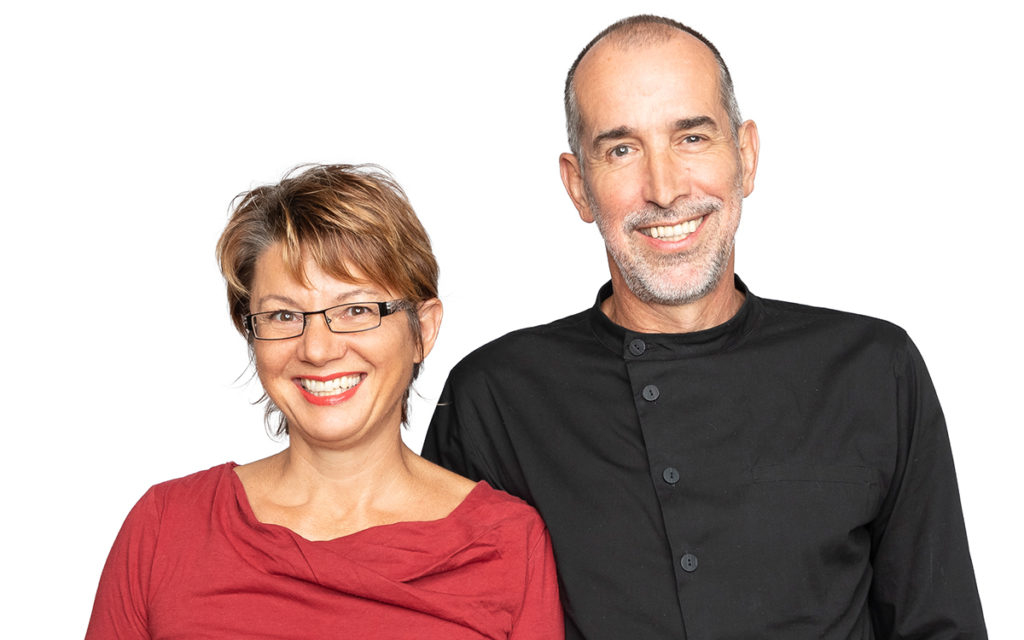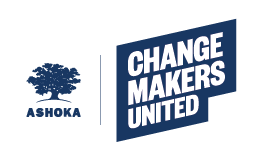News:
“If we have a problem that we want everyone to be involved in solving,
we also have to involve everyone”.
we also have to involve everyone”.

With atempo, Walburga Fröhlich and Klaus Candussi want to ensure that everyone can learn and work at their own pace. The focus is on people with learning difficulties – during Theo pandemic, it is now becoming clear that many more people are in need of comprehensible language. In this interview, Klaus tells us how he experienced the year and what plans atempo is pursuing for the next year to come.
What were your expectations going into 2020?
We had big plans, because it was the year when our work on and with artificial intelligence was supposed to really get off the ground. And it started off pretty well – we were talking to big companies that could use this technology. So, to simplify information and not only in the form of head work, as before, but that a large part of the preliminary work is done by artificial intelligence. Unfortunately, then from the spring on, no one wanted to talk to us about it … the bubble burst for the time being.
What happened next?
Fortunately, we had already made the decision in 2016 not to follow the general prejudice that all this digitalization was not so important for the social sector and so. Under the slogan “Digital can be social,” we looked at how we could use these new developments in a meaningful way for our field. This preliminary work has been very beneficial to us. Because we were able to offer very concrete solutions very quickly.
Meaning?
In connection with the pandemic, one thing has become clear once again: If I want to solve a problem, it is first and foremost a question of information. By that I don’t just mean information that is already available – in principle, we can Google anything, all knowledge is available – but go one step further: from knowledge to understanding. If we have a problem that we want everyone to be involved in solving, we have to get everyone involved. In the case of the pandemic, everyone needs to understand what is happening, if possible. Everyone must understand how he or she is supposed to behave – if something remains unclear, we will experience what is happening right now: That many people are poorly informed and behave accordingly. These people do not become part of the solution but remain part of the problem.
Before the pandemic, when the topic of digitization came up, many people said “we don’t need it” – then, suddenly, everyone needed it. You say that you guys did good groundwork. So, was the demand correspondingly high for you?
Shortly after the outbreak of the pandemic, we had so much work that the common model of our government – namely to go on short-time work – almost broke our neck. We had a lot more work, the only question was: Can we pay for it? When it became clear how important everything digital was all at once, we responded quickly. For example, we built a platform for assistant placement, www.ava.services. And we started working with the ministry. Having information about the pandemic worded in a way that is self-explanatory has become standard. Before our Ministry of Social Affairs releases anything, they come to us with a request to prepare it in a way that everyone can understand, if possible.
How did you perceive communication on the part of politicians at the beginning? In Germany, for example, it was very criticized, at least at the beginning…
The poor communication at the beginning didn’t surprise us, because we’ve known that for years. It’s also true that it affects a much larger target group than is generally assumed. Many people believe that comprehensible information is something that people with learning difficulties and migrants need. In reality, we know that half of the information provided by the authorities is not understood. In concrete terms, this means that these people are always dependent on the help of others.
… and therefore also on the opinion of others.
That comes in addition, yes. If I look back a long way, our initial concern in working with capito was that we noticed in our work with people with disabilities that this target group – we are now talking specifically about those who used to be called mentally handicapped and are now called people with learning difficulties – generally do not take their own independent decisions. One meant they would not be able to take them. Yet this independent decision-making is incredibly valuable to all of us. We then took a closer look and realized that for every decision we make, there has to be a certain information base that we understand. And that’s where the problem lies.
Who else does this problem affect?
A large part of the population. And the problem has major implications for society: What about social cohesion in times of fake news? In our opinion, the traditional media are leaving large sections of the population – in Austrian we would say – to die stupid, because they are unable and unwilling to present information in a way that is generally understandable. Instead, they believe that quality information is something for the upper class, so we can formulate in C1 or C2 …
C1 and C2 are the highest language levels. C2 means that everything read or heard is understood effortlessly …
And then we are all surprised when large parts of the population can only use poor sources of information. Yes, the Bild-Zeitung just writes damn simple, and also on Facebook or Telegram is often simply formulated – these media are then for many the only source of information. I would go so far as to say that the media are partly to blame for the state of affairs we are currently painfully experiencing.
Fake news has been an issue for some time, and now during the pandemic, movements like the cross-thinkers emerged.
The bad thing is that the populists have always recognized early on that they have to formulate simply. And they pull it off. But fortunately, things are gradually changing. A few years ago, we started a project with the Austrian Press Agency, partly because that’s a way of disseminating information digitally at different levels. ORF now has that on its home page. In terms of queries, we are in the mid-hundred-thousand range every month. People click on it, they want it. This is now continuing.
In what way?
We are currently taking with German news agencies.
You are part of Changemakers United. What added value does (did) the program have for you?
The big added value for us is visibility. The problem is always: You can have nice solutions, but if you can’t communicate well from your own area, it’s always a drop in the bucket. And you don’t get the impact that the thing actually deserves. Changemakers United has brought us a lot of visibility internationally. Now, of course, you never know what the one measure is that will get you ahead – it’s always a mix. Changemakers United was an important piece of the puzzle in this mix, so that things are going so well for us now.
Where do you want to go from here in 2021? What new things will happen?
All in all, the feeling prevails right now: Hey, now it’s really going to start. But – I always have a ‘but’: This year we had a special combination of luck, the right time and skill. In 2021, we will continue to focus on the artificial intelligence we are currently developing. That’s where the music is playing now. New investors have come on board, a major fund is now involved – these are all developments that we have been working on for a long time.
What exactly is artificial intelligence all about?
What you understand and what I understand depends not only on our respective linguistic abilities, but also on our prior knowledge. Only you know where that lies. What artificial intelligence now makes possible is that we prepare information at different levels and you can choose how you want to consume it at a particular moment. This depends partly on your prior knowledge, but also on the situation: If you only have a little time and want something very short and crisp, then the summary at the simplest language level is sufficient.
Isn’t such a preparation incredibly expensive?
One page of language simplification costs as much as having a page of text translated into a very complicated language such as Finnish. That massively limits the output. The artificial intelligence we are now training can largely support this process – and make it cheaper. It also means we can make much more information accessible, driving up impact. But we’re not streamlining away by using artificial intelligence; we’re actually creating new jobs, because quality assurance always has to be done by humans.

